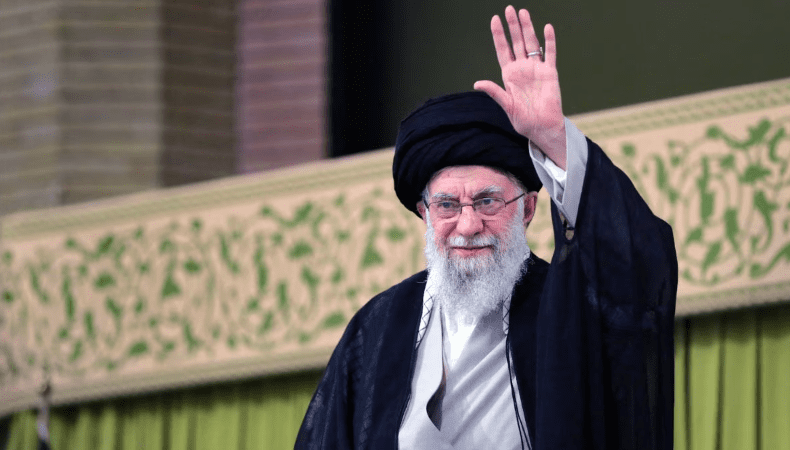
The Build-Up of Tensions
Iran’s warning follows a series of developments that have intensified longstanding grievances in the region. For years, Iran, Israel, and the U.S. have maintained an uneasy balance, each wary of the other’s actions. In recent months, however, a series of reported military maneuvers and accusations of interference from both sides have added fuel to an already volatile situation.
From Israel’s perspective, Iran’s nuclear program and its growing influence in the region represent direct threats. Israel has repeatedly warned against Iran’s increasing presence and influence in Syria, Lebanon, and Gaza, where it perceives Iran’s proxy groups to be challenging its security. The United States, as Israel's ally, has backed efforts to curtail Iran’s regional reach, expressing support through military aid to Israel and a presence in key strategic areas.
On the other hand, Iran views these activities as encroachment on its sovereignty and a threat to its influence. Iranian leaders have condemned what they see as acts of aggression, making it clear that they would retaliate if pushed. The recent rhetoric reflects this stance, with officials stating that any further perceived provocations will be met with severe retaliation.
Implications for Regional Stability
This escalation has far-reaching implications, not only for Iran, Israel, and the U.S., but for the stability of the entire Middle East. Countries in the region have historically been caught in the crossfire of these rivalries, with conflicts often spilling over into neighboring territories. The fear is that if these tensions continue to rise unchecked, they could lead to wider instability across the Middle East, affecting nations from Syria and Lebanon to Yemen and Iraq.
For Israel, the stakes are existential. The country has consistently emphasized that its security is non-negotiable and views Iran’s ambitions in the region as an existential threat. Israel’s policy of preemptive strikes and its willingness to take direct action against perceived threats add another layer of tension. Meanwhile, Iran’s expanding network of regional alliances poses a significant challenge to Israel’s security, with Iran-backed groups positioned in areas bordering Israel.
For Iran, maintaining its influence in the region is a strategic necessity. Iran’s leaders view U.S. and Israeli interference as attempts to destabilize the regime and undermine its sovereignty. Iran's growing alliances with Russia and China have also bolstered its confidence in confronting perceived threats, adding complexity to the diplomatic landscape. This dynamic has made the region a geopolitical flashpoint, where local conflicts could easily draw in global powers.
The Role of Global Powers
The United States has long been a key player in the Middle East, supporting Israel through aid and military presence. However, the recent rhetoric from Iran suggests that any further involvement from the U.S. could provoke a strong reaction. The Biden administration has tried to balance its relationship with Israel while maintaining diplomatic channels with Iran, a challenging task given the highly charged atmosphere. On the other side, Russia and China have shown increasing interest in backing Iran, seeing the country as a valuable ally in their broader strategies.
This alignment has heightened global concern that any conflict in the region could escalate quickly, drawing in superpowers and destabilizing global security. Given these stakes, some international observers are calling for renewed diplomatic engagement to avoid any irreversible mistakes. The potential for miscalculation is high, with each side seemingly willing to push boundaries to assert their influence.
Prospects for Diplomacy
In this tense environment, diplomacy remains a potential avenue for de-escalation. Both Iran and the U.S. have occasionally hinted at openness to negotiations, but mutual distrust and the competing agendas of regional powers make this a difficult path. European countries, particularly those involved in the now-stalled Joint Comprehensive Plan of Action (JCPOA), or Iran nuclear deal, have expressed hope that diplomacy can still prevent conflict.
While there is an interest in diplomatic solutions, regional experts are skeptical that meaningful discussions can take place given the current climate. For any negotiation to succeed, there must be a framework that addresses both security concerns and national interests, a challenging balance given the deep-rooted animosity between these nations.
Looking Forward
Iran’s warning to the U.S. and Israel serves as a reminder of the fragility of peace in the Middle East and the broader risks of unchecked tension. As each side entrenches itself further, the region remains on edge, with global ramifications if conflict were to break out. Whether diplomatic efforts can ease these tensions or whether we are witnessing the prelude to a larger conflict is uncertain. What is clear, however, is that the Middle East’s stability hangs in the balance, with potential consequences that could extend far beyond the region.
As the situation unfolds, the world watches with bated breath, aware that a misstep by any of the players could spark a chain reaction. The stakes are high, and the need for carefully managed diplomacy has never been more urgent. In the meantime, Iran’s warning serves as a stark reminder of the price of regional discord and the importance of open channels of communication—even among adversaries.
